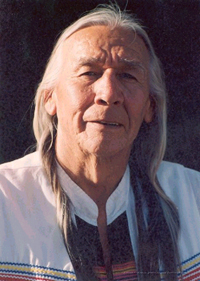A Quote by Studs Terkel
The history of those who shed those other tears, the history of those anonymous millions, is what Terkel wants readers and listeners to come away with. What's it like to be that goofy little soldier, scared stiff, with his bayonet aimed at Christ? What's it like to have been a woman in a defense-plant job during World War II? What's it like to be a kid at the front lines? It's all funny and tragic at the same time.
Quote Topics
Related Quotes
In the earlier days of history, kings and leaders went to the battlefield with their men; but today, those who determine that a nation will go to war remain safely behind. The next time leaders talk of warring, all the people should get together and send those leaders to the front lines. Give them a big arena with wonderfully effective ammunition, and the war will be finished in a day
Like every man who appears at an epoch which is historical and rendered famous by his works, Jesus Christ has a history, a history which the church and the world possess, and which, surrounded by countless memorials, has at least the same authenticity as any other history formed in the same countries, amidst the same peoples and in the same times. As, then, if I would study the lives of Brutus and Cassius, I should calmly open Plutarch, I open the Gospel to study Jesus Christ, and I do so with the same composure.
There is an ancient Indian saying that something lives only as long as the last person who remembers it. My people have come to trust memory over history. Memory, like fire, is radiant and immutable while history serves only those who seek to control it, those who douse the flame of memory in order to put out the dangerous fire of truth. Beware these men for they are dangerous themselves and unwise. Their false history is written in the blood of those who might remember and of those who seek the truth.
Since I was a kid. I had this series by Ballantine Books about the history of World Wars I and II. In my 20s, it was the Vietnam War literature of novelists like Tim O'Brien, Philip Caputo, and Tobias Wolff, and then nonfiction such as "A Bright Shining Lie" by Neil Sheehan and "The Best and Brightest" by David Halberstam . Those are the two best histories of Vietnam.
Blaire, This teardrop represents many things. The tears I know you’ve shed over holding your mother’s piece of satin. The tears you’ve shed over each loss you’ve experienced. But it also represents the tears we’ve both shed as we’ve felt the little life inside you begin to move. The tears I’ve shed over the fact I’ve been given someone like you to love. I never imagined anyone like you Blaire. But every time I think about forever with you I’m humbled that you chose me. This is your something blue. I love you, Rush
People just like the thrill of anything. Dangerous things and dark things are exciting. Like as a kid, I knew I wasn't going to get killed if I went into the Haunted House but you kind of feel like you are. And when it comes out the track the other side, it's like, "we're still alive"! And I find it really funny when adults get really scared because I've not been really scared since I saw Jaws when I was a little kid. I just think people like the thrill of it, they like to feel like they accomplished something, that they survived the movie.
We do hear perhaps too many accolades generally aimed at people like Steve Jobs. We have to remember that there are other classic things in life that we undervalue and take them for granted. If you think of the classic lines of the modern jet aircraft, it's really been there since early World War II.
Saving Italy is an astonishing account of a little known American effort to save Italy’s vast store of priceless monuments and art during World War II. While American warriors were fighting the length of the country, other Americans were courageously working alongside to preserve the irreplaceable best of Italy’s culture. Read it and be proud of those who were on their own front lines of a cruel war.
I did not know much history when I became a bombardier in the U.S. Air Force in World War II. Only after the War did I see that we, like the Nazis, had committed atrocities... Hiroshima, Nagasaki, Dresden, my own bombing missions. And when I studied history after the War, I learned from reading on my own, not from my university classes, about the history of U.S. expansion and imperialism.
I get letters from two kinds of readers. History buffs, who love to read history and biography for fun, and then kids who want to be writers but who rarely come out and say so in their letters. You can tell by the questions they ask - How did you get your ?rst book published? How long do you spend on a book? So I guess those are the readers that I'm writing for - kids who enjoy that kind of book, because they're interested in history, in other people's lives, in what has happened in the world. I believe that they're the ones who are going to be the movers and shakers.
His lessons were chock-full of analogies for a variety of musical situations. Those little things were my favorites. 'No . . . that's too much vibrato. It's like putting bright red lipstick on a beautiful woman.' I always thought it was funny that when you broke a musical rule-like accenting a weak beat-he would turn his head away from you sharply, almost as though he were in pain. It's like you just slapped him in the face by being unmusical.































